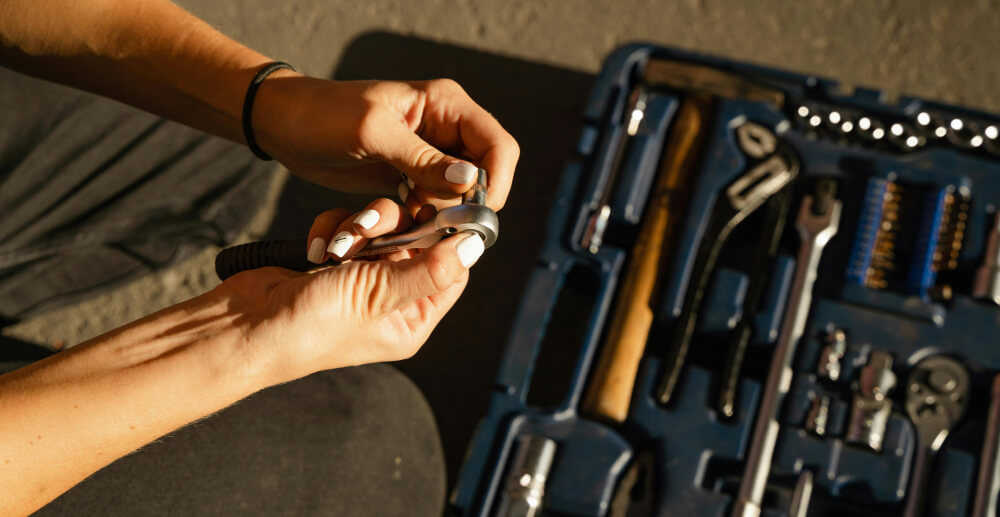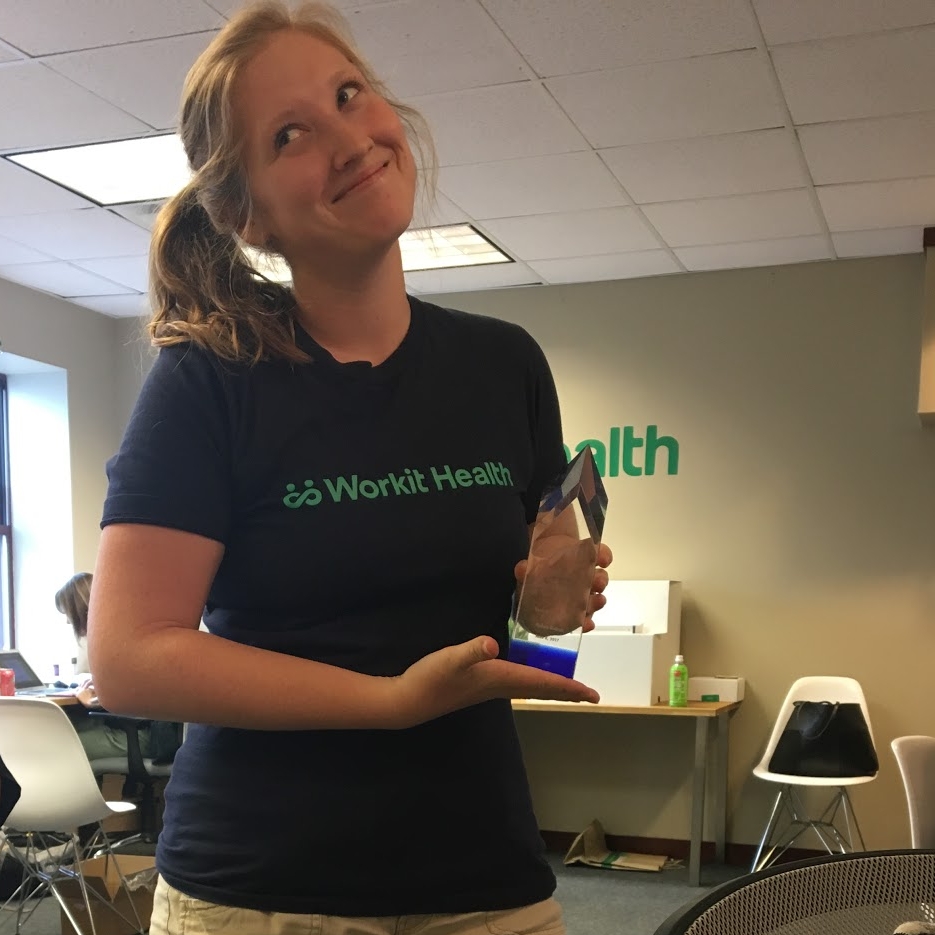Mindfulness can be a powerful tool in eating disorder recovery.
We recently caught up with Brooke, Workit’s Head of Care Management, to talk about her journey through eating disorder recovery. Brooke recently mentioned that mindfulness can be a valuable tool in eating disorder recovery. But in much mindfulness work, the focus is on the on the body, an area of anxiety and concern for those in eating disorder recovery.
Brooke, how long have you been in recovery from an eating disorder?
I’ve been in recovery for about three years.
Mindfulness is not a word everyone might be familiar with. What does it mean to you?
To me, mindfulness means truly listening to your body and your mind. It involves taking time for yourself to notice thoughts and bodily sensations you are having. One of the most valuable skills that mindfulness has taught me is forgiveness. A lot of people think that meditation and mindfulness requires full attention and complete relaxation, but to me it’s more about simply taking time to be present and forgiving yourself when your thoughts wander. You don’t have to be sitting cross-legged in complete silence to be mindful. It can be as simple as noticing things you don’t usually stop to look at, or taking some deep breaths when you’re feeling overwhelmed.
And what sort of role does mindfulness play in your recovery today?
I tend to be pretty bad at regularly meditating, so I try to practice mindfulness in little ways throughout my day. When I am feeling anxious about food, I’ll reflect into myself about why I am feeling this way. When I get the urge to purge after I eat, I’ll often try to take time to appreciate how the food I ate will nourish my body instead of thinking about how it might affect my weight. The forgiving nature of mindfulness often comes into play for me when I’m having trouble meeting my goals. If I diverge from eating healthy, I try to forgive my actions and remind myself that one cheat meal is not realistically going to impact my weight. When I just cannot finish my workout, I forgive myself. Instead of beating myself up, I think of how much I’ve achieved by even stepping foot in the gym!
What are some problems with traditional mindfulness exercises for those struggling with eating issues?
Mindfulness in eating disorder recovery can be so helpful, but there are some obstacles. Eating issues commonly come with negative body thoughts and anxiety. These often translate into intrusive thoughts. When I first tried to meditate, it was basically an invitation for these negative thoughts to take over my mind. This is something I think everyone works through with meditation, but it was definitely made worse by my eating disorder and anxiety.
Also, a lot of mindfulness is centered around breathing deeply from your stomach. Sometimes you’re even asked to put your hands on your waist to feel your breath. During these practices, it was as if my mindfulness instructor was saying, “Touch your most-hated body part and focus on how disgusting it is!” It was very distracting to me. When there is so much negativity around your body, I think it needs to be addressed in the practice in order to be effective.
For those of us not struggling with eating issues, how can we be more aware of body issues when recommending mindfulness?
I would recommend staying away from traditional meditation at first. Instead, suggest exercises that are more structured. Like a mindful walk or listening to music in a mindful way. You can also directly address the problems with eating disorder-informed practices, such as positive body scans or mindful eating.
Always note that mindfulness requires practice. It’s hard for everyone when they first start. We live in a fast-paced world and really aren’t used to slowing down and listening to ourselves. In a way, mindfulness goes against what we’re taught will make us successful. Overcoming the urge to constantly be doing something or thinking a mile a minute is difficult for anyone!
Now let’s drop this into our Workit World. Did overcoming an eating disorder influence your decision to come work with us at Workit Health?
Definitely! Workit is run by people who truly understand eating issues and addiction. We’ve been there and we know what works. In a world that shames mental illness and seeking help, it is incredibly refreshing and empowering to see a group of successful people all owning their struggles and using their experiences to help others.
How does Workit fit into your self-care solutions for your own eating issues today?
I credit so much of my recovery to being able to share my story with others. Workit allows me to do that. Helping others fight the same intrusive thoughts and behaviors I have struggled with is empowering. It is also amazing to work with people who understand that some days are just hard. You’ll never be judged or shamed at Workit for taking a much-needed mental health day!
Thanks so much, Brooke!






